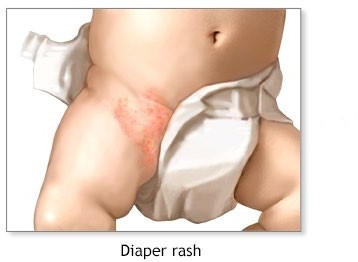While obtaining the vital signs of a 10-year-old child who had a tonsillectomy this morning, the nurse observes the child swallowing every 2 to 3 minutes.
Which assessment should the nurse implement?
Inspect the posterior oropharynx.
Touch the tonsillar pillars to stimulate the gag reflex.
Ask the child to speak to evaluate change in voice tone.
Assess for teeth clenching or grinding.
The Correct Answer is A
The nurse should inspect the posterior oropharynx of a child who is frequently swallowing after tonsillectomy to assess for bleeding or the presence of clots. Swallowing frequently can be a sign of postoperative bleeding, which is a potential complication of tonsillectomy.
Touching the tonsillar pillars to stimulate the gag reflex or asking the child to speak would not provide information about the presence of bleeding.
Assessing for teeth clenching or grinding is not related to this particular observation.

Nursing Test Bank
Naxlex Comprehensive Predictor Exams
Related Questions
Correct Answer is A
Explanation
Answer: A. Biopsy may rupture the encapsulated tumor and cause the cancer cells to spread.
Rationale:
A) Biopsy may rupture the encapsulated tumor and cause the cancer cells to spread: This is the primary reason why surgery is performed before a biopsy in cases of Wilms tumor. The tumor is usually encapsulated, and performing a biopsy could risk breaking the capsule, leading to the dissemination of cancer cells into surrounding tissues, which can worsen the prognosis.
B) Metal clips are surgically applied at the tumor site for exact marking for radiation: While marking the tumor site for radiation is important, it is not the primary reason for performing surgery before a biopsy. The main concern is about the potential for cancer cell spread during a biopsy procedure.
C) Surgery is necessary to stage the tumor and determine metastasis to other sites: Although staging is a critical aspect of cancer management, the urgency of avoiding tumor rupture and subsequent spread is more pressing in this context. The surgery may assist in staging, but that is not the primary reason for immediate surgical intervention.
D) The surgery provides a visualization of other pathology and dysfunction of the kidney: While the surgical procedure may provide additional information about the kidney's condition, the most significant concern regarding Wilms tumor is preventing tumor rupture and the consequent spread of cancer cells, making this option less relevant.
Correct Answer is D
Explanation
The most significant finding in planning care for this family is that the infant's diaper area shows severe skin breakdown. Severe skin breakdown in the diaper area can be a sign of diaper rash or other skin irritation, which can cause discomfort and disrupt the infant's sleep. Addressing this issue can help improve the infant's comfort and promote beter sleep. The other options (A, B, and C) may also be relevant, but severe skin breakdown in the diaper area is the most significant finding in this situation.

Whether you are a student looking to ace your exams or a practicing nurse seeking to enhance your expertise , our nursing education contents will empower you with the confidence and competence to make a difference in the lives of patients and become a respected leader in the healthcare field.
Visit Naxlex, invest in your future and unlock endless possibilities with our unparalleled nursing education contents today
Report Wrong Answer on the Current Question
Do you disagree with the answer? If yes, what is your expected answer? Explain.
Kindly be descriptive with the issue you are facing.
